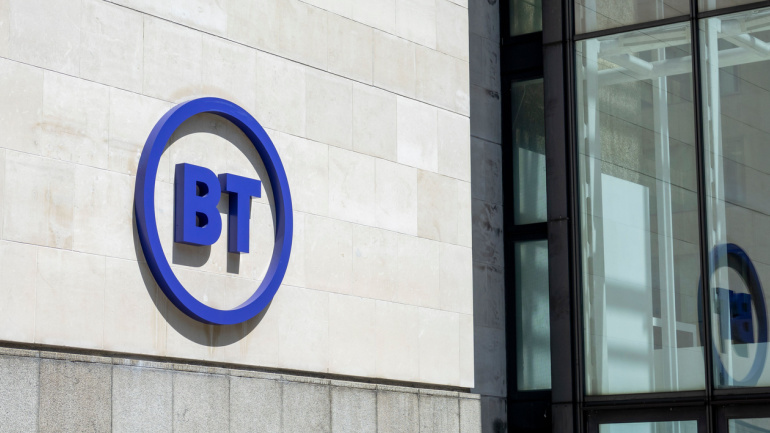Altice UK increases its stake in BT to 24.5%, fueling speculation about the company’s intentions. Despite no current plans for acquisition, the move highlights the shifting landscape of the telecommunications industry and the growing trend of insiders acquiring significant stakes in UK telco groups.
BT unveils plans to reduce workforce by 40% and expand FTTP network, aiming for millions more retail fiber customers and significantly increased 5G coverage. Amid mixed financial results, the company’s transformation strategy seeks a leaner structure and a brighter future.
BT and ServiceNow join forces to launch a contact-centre-as-a-service (CCaaS) offering, streamlining digitalization for businesses and public sector clients. This cloud-based solution promotes flexibility, cost-efficiency, and innovative services for a seamless user experience.
BT, the UK’s largest telecommunications company, has announced plans to restructure its business by consolidating its Global and Enterprise divisions into a single unit called BT Business. The aim of this move is to cut costs and improve the performance of underperforming businesses. As part of this restructuring, BT will eliminate various product portfolios and management and support positions, with the goal of saving £100 million by 2025. The combination of the two divisions is expected to increase simplicity by eliminating unnecessary duplication and allowing the company to offer a single service to both corporate and public sector clients. This restructuring comes after the company announced in April that it would rebrand all of its consumer operations as EE, with BT becoming the flagship brand for its corporate units. In addition, the enterprise division has experienced a series of poor quarters, with a 23% drop in the first…
BT and ABB, a Swedish–Swiss multinational corporation specializing in robotics, power and automation technology, have announced a collaboration to upgrade the latter’s globally managed communications infrastructure to new levels of performance and flexibility to support the company’s new operating model. Under this partnership, BT will modernize ABB’s network infrastructure in cooperation with ABB’s Information Systems team to build a sustainable, robust and secure core platform with a highly automated and data-driven managed service. BT will provide an end-to-end, comprehensive, multi-layered cyber security environment to support ABB’s cloud-first goals. The company will install, operate and monitor over 1,100 end-point devices, constantly validating every device, user and application that is connected to the network. Security is a primary focus as ABB implements its cloud plan, which involves consolidating data centers and sending more apps and data to the cloud. With nearly 600 locations in 60 countries, the communications infrastructure will…
Launched in September, Nokia’s Network as a Code aims to help operators optimize their 5G resources. By granting developers extensive network access, this platform unlocks opportunities for new application creation. With the advantage of 5G’s inherent software-based architecture, such innovative companies like BT Group are exploring unsuspected capabilities for enhanced network quality.
As Three UK reports a 4% revenue boost, courtesy of an expanded active customer base, its operations cost, inflated by 19%, outpaces earnings, hinting at potential sustainability issues. In a different landscape, Telecom Italia shows a 5.5% Q2 profit increase, largely on Brazil’s performance, though competitive pricing in Italy has forced a hefty debt, leading TIM to consider selling its landline grid. At the same time, BT Group sees an uptick in revenue by 4%, attributed to raised prices and improved customer satisfaction. Contrarily, US-based Qualcomm, hit by reduced consumer spending, anticipates a similar upcoming quarter, resulting in a sharp fall in share price. Meanwhile, Bharti Airtel highlights a 14.1% YoY revenue increase, fueled by its growing 4G and postpaid customer base.
BT’s innovative Etc unit is poised to launch trials repurposing outdated street cabinets into electric vehicle (EV) charging points. Aiming at a smooth transition during the UK’s fiber rollout, this pioneering step initially caters to BT Group and Openreach employees in Northern Ireland, with plans for public engagement. However, the venture’s ultimate impact rests heavily on successful pilot performance.
A recent report commissioned by EE suggests that 4G mobile connectivity can generate significant economic benefits for rural communities, with potential earnings exceeding £6 million. However, in half of the analyzed locations, the cost of upgrading outweighed the financial advantages.
The UK’s popular Lake District, plagued by poor mobile service, is set for an upgrade with EE boosting its masts’ performance. The upgrades, part of the ambitious Shared Rural Network program, will improve coverage across less-accessible communities, attempting to achieve 95 percent UK coverage by 2025. While enhancing connectivity in the countryside, meeting an impending 2G and 3G network phase-out, these improvements respect the natural landscape and cater to rural communities’ unique needs. This project is hailed for supporting local lifestyles, businesses, tourism and potentially enabling fresh opportunities.













